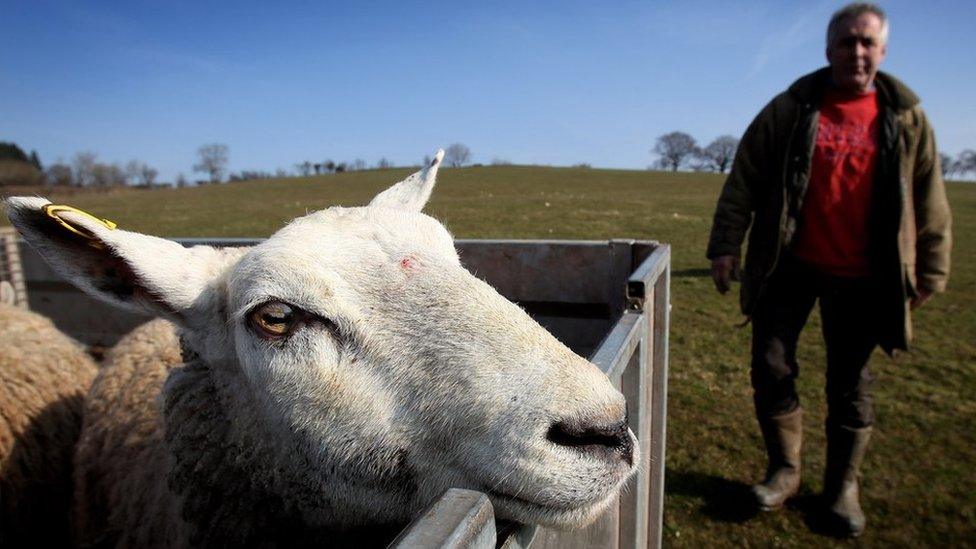Rural broadband only on request, says government
- Published

Many farmers are crying out for faster internet connectivity, says the National Farmers' Union
The government will not automatically roll out broadband to those areas of the UK that don't yet have services, it has been confirmed.
Instead, its Universal Service Obligation, announced last year, will require homes and businesses to request providers offer net connections.
Those "broadband have-nots" could face a four-year wait until they are legally entitled to request such a service.
How the process will work and who will pay for it remain unclear.
In a consultation document on the USO, the government said: "Given the high costs of providing broadband access to premises in remote areas it is right that this is done on request, rather than rolling it out and waiting to see if people in those areas want to be connected.
"We know from the various interventions that the government has made to date that it is unlikely that everyone will want to be connected, even if that option is made available to them, and so we do not believe that an additional broadband rollout programme at this time is proportionate or would represent value for money."
But it denied reports that this represents a U-turn, saying it had never claimed there would be further rollouts.
"It's absolute nonsense to suggest we're leaving rural areas behind in our rollout of broadband.
"Our current plans will reach at least 95% of the UK, but we want everyone to have fast broadband so we are introducing a Universal Service Obligation to help make sure no-one is left behind," a spokesman for DCMS told the BBC.
The government has said it hopes to have the USO in place "by the end of this Parliament" in 2020, adding it was working to make it happen "as soon as possible".
How it will be funded remains unclear but it is likely to be along similar lines to the way the legal obligation for telephone services operates - the onus on funding is on BT, up to a threshold of £3,400. If costs go above that, the home owner is asked to contribute.
In demand?
In November 2015, the prime minister announced the government's intention to implement the new broadband universal service obligation (USO) to provide broadband speeds of at least 10Mbps (megabits per second) to everyone, saying it wanted to put broadband on a more equal footing with essential services such as electricity and water.
Under current plans, the government hopes to deliver broadband to 95% of the UK by December 2017.
The DCMS estimates that up to 1 million UK premises will not be able to access speeds of 10Mbps or higher by that time.
Some agree that the government is right to offer broadband to the final 5% on a demand-only basis.
"If you think back to 2009 when the government floated the idea of imposing a 50p levy on all fixed lines to pay for rural broadband, a number of people in rural areas came out protesting that they wouldn't pay for it, as they didn't want broadband," said Matthew Howett, an analyst with research firm Ovum.
A study from comparison site uSwitch suggests that even in towns where fast broadband is readily available, take-up is not always as high as might be expected.
BT's own figures also seem to bear this out - its fibre services are now available to 24 million homes but only 22% (5.5 million) have connected to them.
Paul Evans, chief executive of Boosty - a service which boosts fixed broadband speeds with smartphone 3G and 4G - said the fact that there would be no automatic rollout to remote areas "will be met with bitter disappointment".
"Yet again those living in rural areas are deprioritised and denied access to what we now consider to be a commodity service."
Andrew Ferguson, co-founder of broadband news site ThinkBroadband, said universal broadband is already available to most households.
"Satellite connections with speeds well in excess of 10 Mbps are available to all if you can locate a satellite dish with a clear view of the southern sky on your property, but we hope and have urged that the USO only utilise satellite connectivity as a measure of last resort."
Further details of how the broadband USO will work, including how it will be funded, will be laid out in a second consultation, expected this summer.
- Published28 April 2016

- Published7 November 2015
